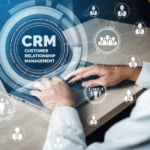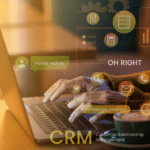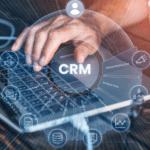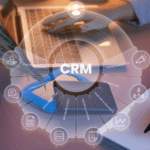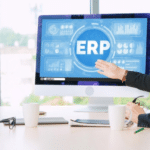Streamlining Construction Management: Exploring Construction ERP Solutions
Construction ERP (Enterprise Resource Planning) solutions serve as indispensable tools for managing the complex and multifaceted operations within the construction industry. These comprehensive software platforms integrate various business functions, from project management and resource allocation to financials and procurement, into a centralized system. In this article, we delve into the features, benefits, and considerations of Construction ERP solutions, highlighting their role in driving efficiency, collaboration, and profitability within construction firms.
Understanding Construction ERP Solutions
**1. Integrated Functionality
- Construction ERP solutions offer integrated functionality to manage all aspects of construction projects, including project planning, resource management, procurement, subcontractor management, financials, and compliance. By centralizing data and processes, these solutions provide real-time visibility and control over project lifecycles.
**2. Project Management Capabilities
- Construction ERP solutions include robust project management capabilities to facilitate planning, scheduling, budgeting, and tracking of construction projects. From creating project schedules and assigning tasks to tracking progress and managing change orders, these solutions streamline project execution and ensure on-time and on-budget delivery.
**3. Resource Allocation and Management
- Construction ERP solutions enable efficient allocation and management of resources, including labor, equipment, materials, and subcontractors. By optimizing resource utilization, scheduling, and procurement processes, these solutions help construction firms maximize productivity, minimize downtime, and reduce costs.
**4. Financial Management and Accounting
- Construction ERP solutions provide comprehensive financial management and accounting features tailored to the construction industry. From managing project budgets and tracking costs to invoicing, billing, and financial reporting, these solutions ensure financial transparency, accuracy, and compliance throughout the project lifecycle.
Key Features of Construction ERP Solutions
**1. Project Cost Estimation and Budgeting
- Construction ERP solutions offer tools for project cost estimation and budgeting, allowing firms to accurately forecast project costs, allocate budgets, and track expenses against budgeted amounts. By identifying cost overruns and variances early on, construction firms can take proactive measures to control costs and improve project profitability.
**2. Resource Planning and Scheduling
- Construction ERP solutions enable efficient resource planning and scheduling by providing tools for labor management, equipment tracking, and materials procurement. By optimizing resource allocation and scheduling, firms can minimize downtime, prevent bottlenecks, and ensure timely completion of projects.
**3. Document Management and Collaboration
- Construction ERP solutions facilitate document management and collaboration by providing centralized repositories for project documents, drawings, contracts, and communication logs. With features for version control, access permissions, and real-time collaboration, these solutions improve communication, coordination, and decision-making across project teams.
**4. Compliance and Risk Management
- Construction ERP solutions help firms manage regulatory compliance and mitigate project risks by providing features for tracking regulatory requirements, safety protocols, and environmental standards. By monitoring compliance metrics, identifying potential risks, and implementing risk mitigation measures, firms can minimize legal liabilities and ensure project success.
Benefits of Construction ERP Solutions
**1. Improved Efficiency and Productivity
- Construction ERP solutions streamline project workflows, automate repetitive tasks, and optimize resource utilization, improving overall efficiency and productivity within construction firms. By eliminating manual processes and reducing administrative burdens, these solutions enable project teams to focus on value-added activities and deliver projects more efficiently.
**2. Enhanced Collaboration and Communication
- Construction ERP solutions facilitate collaboration and communication among project stakeholders, including architects, engineers, subcontractors, and clients. By providing centralized platforms for sharing information, tracking progress, and resolving issues, these solutions improve teamwork, coordination, and project outcomes.
**3. Real-Time Visibility and Control
- Construction ERP solutions offer real-time visibility into project performance, financials, and resource utilization, empowering firms with actionable insights to make informed decisions. By accessing up-to-date data and analytics, project managers can identify trends, anticipate challenges, and take corrective actions to keep projects on track.
**4. Cost Savings and Profitability
- Construction ERP solutions help firms control costs, minimize risks, and maximize profitability throughout the project lifecycle. By optimizing resource allocation, managing project budgets, and monitoring financial performance, firms can reduce project overruns, improve cash flow, and enhance overall profitability.
Considerations for Implementing Construction ERP Solutions
**1. Scalability and Flexibility
- Construction firms should select ERP solutions that are scalable and flexible to accommodate their current needs and future growth. The solution should support multi-site operations, diverse project types, and evolving business requirements without requiring significant customization or disruption.
**2. User Adoption and Training
- Effective user adoption and training are essential for successful implementation of Construction ERP solutions. Firms should invest in comprehensive training programs and change management initiatives to ensure that employees and project teams are proficient in using the software and maximizing its capabilities.
**3. Integration with Existing Systems
- Construction ERP solutions should seamlessly integrate with existing systems and applications, such as project management software, accounting systems, and BIM (Building Information Modeling) tools. Integration ensures data consistency, interoperability, and a unified view of project information across the organization.
**4. Security and Data Privacy
- Construction firms must prioritize security and data privacy when implementing ERP solutions, especially when storing sensitive project information and financial data in the cloud. The solution should comply with industry standards and regulations for data security, encryption, access controls, and data privacy to protect against cyber threats and breaches.
Conclusion: Transforming Construction Management with ERP Solutions
In conclusion, Construction ERP solutions play a vital role in modernizing construction management practices, improving efficiency, and driving profitability within construction firms. By integrating project management, resource allocation, financials, and compliance into a unified platform, these solutions enable firms to streamline operations, enhance collaboration, and achieve project success. With careful consideration of key features, benefits, and implementation considerations, construction firms can leverage ERP solutions to optimize workflows, minimize risks, and stay competitive in today’s dynamic construction industry.

